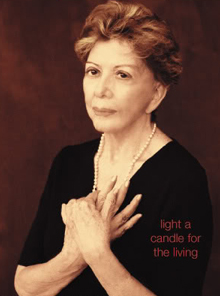Esther Chávez Cano, 1933-2009
 Esther Chávez Cano was a human rights activist who addressed the horrific effects of widespread violence against women and children in Juarez, Mexico
Esther Chávez Cano was a human rights activist who addressed the horrific effects of widespread violence against women and children in Juarez, Mexico
"We have much work left to do, the road ahead is long and hard. There will come a time when my voice becomes silent so that new voices can be heard to carry on the struggle for the rights of women, which, as I have said, is also for the rights of men, because it is the struggle for a more just and democratic society for all."
Esther Chávez Cano, November 9, 2007
In Memoriam: "The Woman Who Dared to Stand Tall on the Border" by Molly Molloy, January 12, 2010.
The Guide to the Esther Chávez Cano collection is available through New Mexico Archives Online (collection # Ms 0471).
Records of Chávez's activist work and her collection of newspaper clippings about crimes against women are housed in the Rio Grande Historical Collections. To view the collection, visit us in person or email us your inquiries or comments.
Biography
Esther Chávez Cano moved to Ciudad Juárez in 1982 after working in executive positions with several Mexican and international businesses. In 1988 she began writing for the newspaper Diaro and eventually gained a position on the executive board of the newspaper.
In 1992 Chávez founded the women's rights activist group Ocho de Marzo (Eighth of March) de Ciudad Juárez, which protested strict new abortion legislation proposed by Mexico's Partido de Acció n Nacional. In 1993 Chávez began keeping track of findings of murdered women in and around Juárez, and Grupo Ocho de Marzo began calling on the government to do better at solving outstanding murder cases and bringing those responsible to justice. In 1996 she helped a group of 11 feminist activist groups to form the Coordinadora de Organismos No Gubernamentales contra la violencia hacia las mujeres (Coordination of Non-Governmental Organizations against violence towards women), to unite all of the NGOs working for the prosecution and prevention of crimes against women. Four years of struggle by this union of groups finally gained the opening of a special investigative unit for sex crimes in the Juárez police force.
In 1999, Chávez founded Casa Amiga, a shelter for women who have experienced physical or sexual abuse, and the only such shelter in Juárez at the time.
Esther Chávez died on December 25, 2009, after a long struggle with cancer.
Additional Resources
- Casa Amiga
- Esther Chávez Cano video by "El Día en Asturias"
- Programa "Justicia para las mujeres de Ciudad Juárez"
- VDAY - In Memoriam: Esther Chávez Cano

